The global health and international development industry are at an inflection point – we have heard the rallying cry that Black Lives Matter and been reminded of the continuing importance of gender equality by the Me Too Movement. As we connect the dots between these movements, we also need to listen to the call from the global south for greater equity in the positions that govern global humanitarian, development and health institutions. The call for a seat on the UN security council, for reform of the international financial institutions and for reparations, are all expressions of increasing agency by the global south. Their leaders have spoken of the need for greater vaccine equity and the implications for all of us if the global south is left behind. This rallying cry from Barbados to Cape Town, from Delhi to Samoa tells us that the moment of reckoning on racism is nigh, born of these increasingly loud calls from the global south to address the institutional racism, exclusion and marginalization of especially black voices in global decision makinginstitutions. Whilst not all countries in the global south speak as one, south-south co-operation is on the rise and the political blocs representing global south issues (AU, BRICS, G77 etc) are increasing co-ordinated on these issues.
If we listen to the call, we will hear that the current global inequity cannot continue, that tokenisation and marginalisation is not acceptable and that victimisation of those who dare stick their heads above the parapet and do not conform to what the world expects of us as black Africans will no longer be tolerated. Age old tropes that have been used to denigrate and deny black and brown people must be exposed for the lies that they are – accusations of nepotism, of corruption and the use of sexual stereotypes - must stop now. These stereotypes have unfortunately been used successfully to keep credible, able and qualified representatives of the global south from making progress – ensuring that the price they pay for challenging the status quo and rocking the boat is too high and comes at too personal a cost.
Examples of victimisation are not one off, individual, isolated cases, but rather a co-ordinated and concerted effort across institutions that have succeeded in keeping representatives of the global south out. The aborted appointment of a high profile black African man as CEO of a major Geneva based global health institution tells a sorry tale, as do the personal attacks that senior black staff across many global institutions have to deal with daily. As a black woman at the helm of a global health organisation, I know what it feels like to be set upon by a mob fuelled by misinformation and racial hatred. I’ve experienced the hurt of judgements made by others on the basis of the colour of my skin, being told I’m ‘not worthy’ of the position, being called an ape by senior colleagues, I’ve had to disprove assumptions made based on stereotypes, that any white person and certainly white man would not have had to consider. These are daily indignities that add to the burden carried by qualified people of colour as they rise up the professional ladder. These racist actions are an attempt to shore up and protect the status quo, but in so doing, they are infecting their own system with corruption based on personal prejudice and instilling institutional weaknesses that will, eventually lead to their own downfall.
Black women continue to prevail despite these racist attacks, and to compensate for the mediocrity of more privileged colleagues whilst knowing they need to be better and more resilient than their white peers if they are to progress. And, if they chose to speak up about the racism they face, they know the consequences can be dire, the backlash severe and often personalised. Daring to call out racism, especially if it is institutionally sanctioned carries the threat of loss of job, reputation and financial security. But not doing so risks perpetuating the problem for future generations, so the brave stand up and speak out knowing that they are role models – whether they like it or not, due to their ‘unexpected’ success.
Many are not able to speak out, either due to either the devastating impact of job loss and financial security might have on them and their family or because the impact of being constantly attacked and denigrated has already broken their spirit, affecting their mental and physical well-being to the extent they do not have the energy to speak out. Dealing with this widespread racism is not easy and cannot be addressed by removing a few ‘bad apples’ as the problem is not that of a few racist individuals. We need a root and branch change, not only because it is the right thing to do, but in the global health industry is the only way that we will be able to make a difference at a time when a Public Health Emergency of International Concern (PHEIC) has been called and we are again seeing a system designed inequitbaly lead to inequitable outcomes where the people in the global south that need the tests, treatments and vaccines cannot access them. The history of AIDS and COVID-19, continues to repeat and reaffirms that rich countries who blocked the pandemic accord helped sustain an unfair and systemically racist global health architecture.
In recent years, philanthropy has become an increasingly important part of the global health architecture. At its best, philanthropy is catalytic, assumes risks or de-risks projects that donor governments and other actors in the development space can’t or won’t fund. At its worst, it is an extension of power for ultra-high net worth individuals (UHNWI), giving them unfettered access and influence over leaders across the globe, with the greatest potential for harm on recipient countries.
Many philanthropies, especially those which suffer from ‘founder syndrome’ are not focused on the needs or wants of recipient countries, but on the priorities of the one individual or founding family. What’s wrong with this, you might ask. Isn’t there inherent goodness in sharing one’s fortune with the many vulnerable people in the world? Not where the philanthropist unilaterally decides the programs to invest in, and is, in effect, another global north organization that will control the resources, and dictate the country’s internal policies that need to be adopted or changed to better implement their preferred programs. It is also problematic because this approach mirrors the structural inequalities built into the wider global development architecture and which are increasingly being called into question by leaders of the global south.
In a similar fashion to the dichotomy of the Omelas "The Ones Who Walk Away From Omelas" by Ursula K. Le Guin, where the prosperity of a utopian city relies on the perpetual suffering of a single child. The populace is made aware of this moral trade-off; while most eventually accept it as necessary for their communal happiness, some are unable to reconcile this reality and decide to walk away. This tale which I’ve written about previously serves as a potent metaphor for the relationship between the Global North and the Global South, philanthropic donations ring hollow when they perpetuate the position of people, organisations and countries as needing aid.
Donor governments, whilst not blameless, do at least have accountability mechanisms as they must account to their taxpayer through their elected legislative bodies, and inbuilt transparency as the politics around decisions play out in the public square. In philanthropy however, any accountability and transparency mechanisms are weak and largely in name only. Boards are replete with friends, beneficiaries or people otherwise beholden to the founder(s); employees cater to their leader’s desires - when pleasing him/her/them is paramount, the environment becomes mired in internal politics and intrigue, with results in country, a distant second; and beneficiary countries, desperate for cash, are in a weak negotiating position and with few exceptions, don’t even try to change the unequal power structures.
While there was a glimmer of hope for a more equitable approach to philanthropy during the decolonizing global development conversations, that moment of opportunity for real change has been bypassed. Individuals in philanthropies with weak accountability and poor transparency have been left unfettered to hijack the institutions for their own gain. Where nepotism and personal networks dictate who makes decisions and gets ahead, racism abounds. And where racism is unchallenged, the people in power will ensure that the institutions in which their power is held will not be challenged by diversity and equality. They will in fact, do their utmost to protect the status quo, will use and abuse their networks and weaponise the institution against those who challenge their power. Examples of this abound and the glaring lack of black women and men in key decision making positions points to the enormity of the problem.
Where decisions are driven by a handful of individuals who have the least experience with poverty, and there is no one to challenge or hold them accountable, decisions are not going to be in the best interests of recipient countries. Unfortunately, philanthropy has not lived up to its original promise of changing the status quo and serving the underserved, rather it is yet another arm of the unequal power structures that are keeping the global south and its representatives at bay. The challenge therefore is for philanthropy to take a bold step away from the old ways of delivering change and development. The lack of accountability to citizens should be turned into something positive enabling it to pivot quickly and develop new, more equitable systems and structures with accountability to the people they purport to serve.
Rebalancing the inequity in our global health institutions will not be easy and it will not be cheap. Doing so requires a commitment to pay for the extra costs that people of colour, and their families have been carrying of their own accord for generations. The opportunity cost of progress has often meant that families are split and live in different countries and continents, that the extra time and effort it takes to get uninterrupted access to electricity and the internet comes out of their own pocket, that the hidden costs of travelling to global centres of power ( transit, visas, travel to and from their local base, childcare) are effectively underwritten by those who can least afford it. The Covid pandemic exposed much of the inequity in the system whilst also increasing the unpaid burden on people of colour at the forefront of the fight against the pandemic. We know that women’s unpaid care work has underpinned the health system in many countries for generations, but the pandemic also required a level of sacrifice from their families that was unprecedented. These personal investments are unsustainable and are not measured or counted but need now to be surfaced and recompensed in order to level the playing field.
This internal crisis must be fixed in order that the external crises can be addressed. If we are to halt M pox and reverse the spread of polio, if we are to prevent the next pandemic, stop climate disasters and to achieve the Sustainable Development Goals we must first address the inequities within the global health and development architecture- and that starts with the people who constitute it. We must move beyond calling for equity as a slogan - our actions must speak louder than our words.
As powerful allies, philanthropes like Bill & Melinda Gates Foundation and others can and should make a difference. It is heartening to see women philanthropists such as MacKenzie Scott and Melinda French Gates acknowledging the gaping gaps and power imbalances of the haves and have nots. I call on philanthropists to stand with us by promoting, supporting and sponsoring credible champions; within your own institution listen to and respond to our concerns and ensure that your governance systems are accountable and transparent. Hold your own and other institutions to a higher standard and make your platform available for black southern voices. Women of colour are doubly disadvantaged and must be given an equal place and platform. Racism and sexism are two sides of the same coin, we cannot afford to prioritise one fight over the other, both must be stopped, and both require a redistribution of power to those in the margins, the majority of whom are women of colour. We must fight against the weaponisation of black vs brown, and against a‘divide and conquer’ mentality that surely doesn’t benefit the humanity we seek to serve nor enable us to respond to the current global health threats. Making the world a more equitable place for ALL is in everyone’s interests.
The conference topic du jour, especially post COVID-19 is “trust”. But what is trust without basic respect and a basic acknowledgment of our own humanity. Those who hunted us as game e.g. san in Southern Africa, Herero genocide in Namibia now speak of trust - but what is trust without an acknowledgment or our common humanity. We are still “otherised” considered as “exotic creatures” as “game”. Africa needs leadership that can stand up to this nonsense, the African Union must wake up, octogenarians are not the answer - we are in the modern day equivalent of slavery with Europe and our former masters buying and selling us in different ways.
It must STOP.
Avoiding accusations of hypocrisy will require us to be seen to proactively listen, learn and act in partnership, with respect. By adopting and implementing this approach, we can help to counter the actions from malign forces who wish to capitalise on the impact of racism as a wedge issue, and to minimise the impact of accusations of double standards, which could undermine the values that underpin democracy and the rule of law. The call from the global south is not just about recompense for the wrongs of the past, it’s also about a newly defined way of partnering for the future – one that is mutually beneficial and mutually accountable- based on a more equal footing in recognition of the past, whilst forging a new future.
Enough is enough, now is the time to stop the relentless oppression and persecution of those of us who are a different colour and focus on humanity as a whole. From Gaza to Ukraine, Sudan to Tigray conflicts driven by divisiveness and hate are destroying our world. Let not diversity be divisive. Let not upholding the status quo be mistaken for anything other than wilful ignorance and fear of change.
To be continued…
Dr. Ayoade Alakija
Board Chair of FIND, Co-Chair of Triple I and WHO Special Envoy for the ACT-Accelerator
3 September 2024
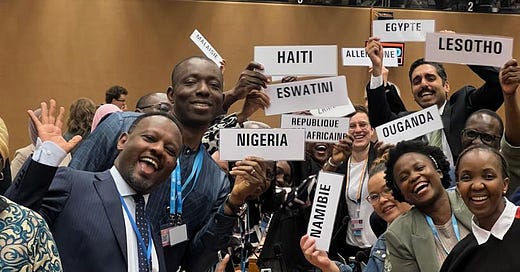



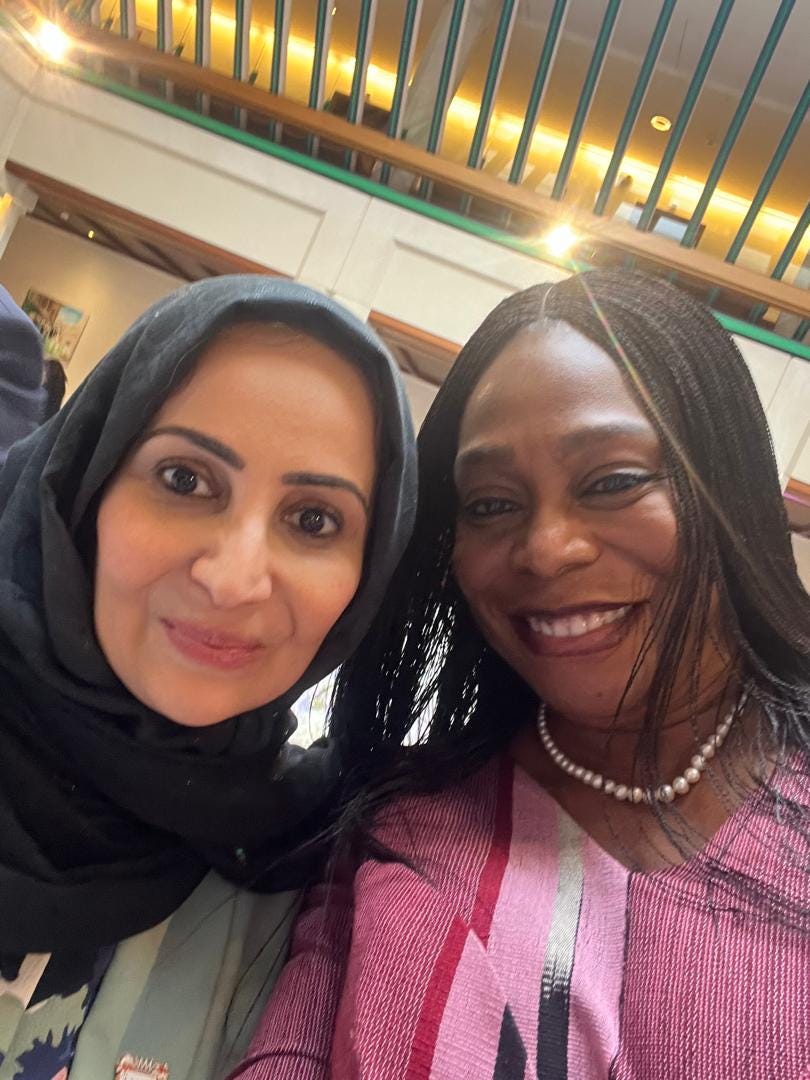

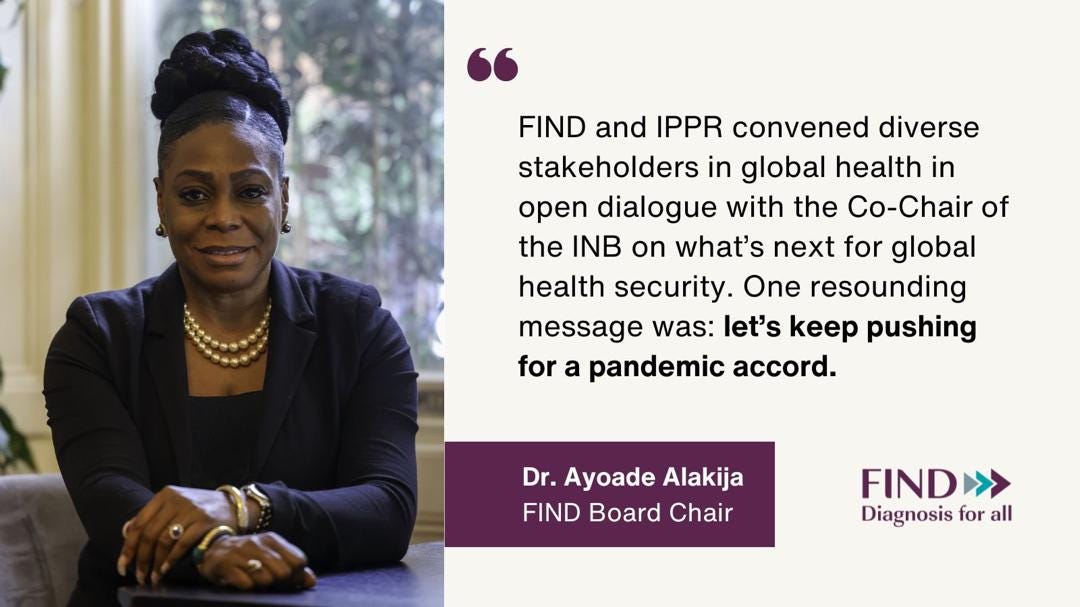
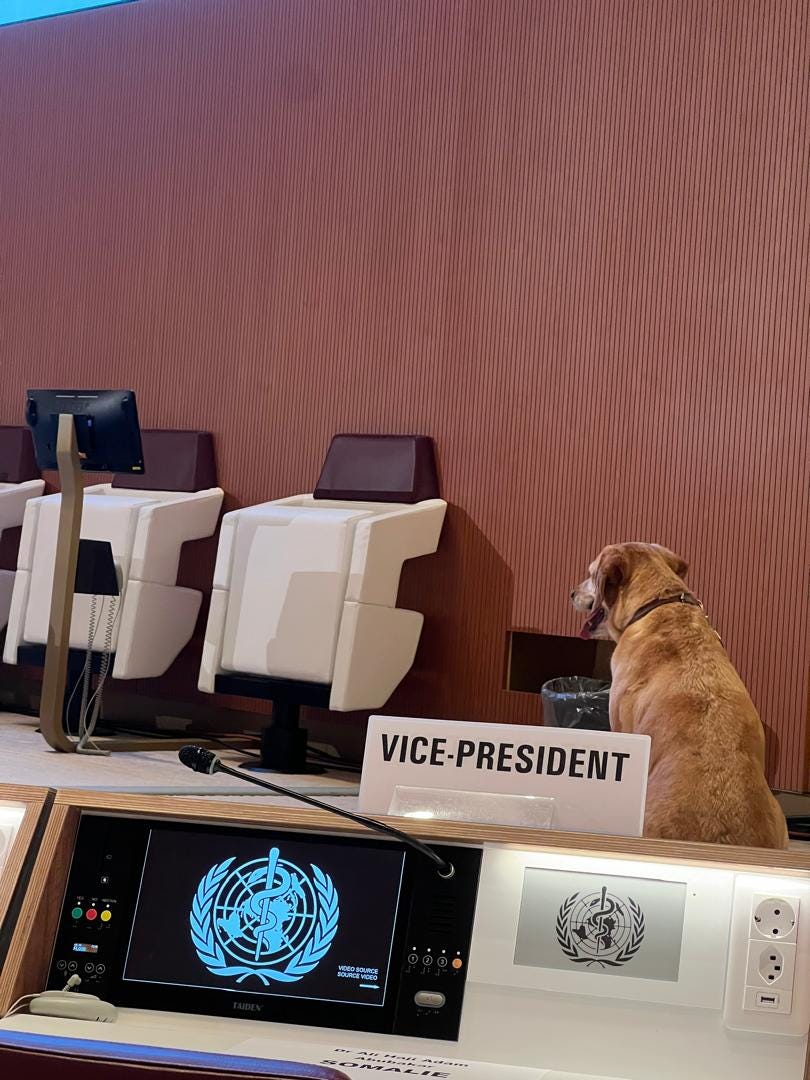
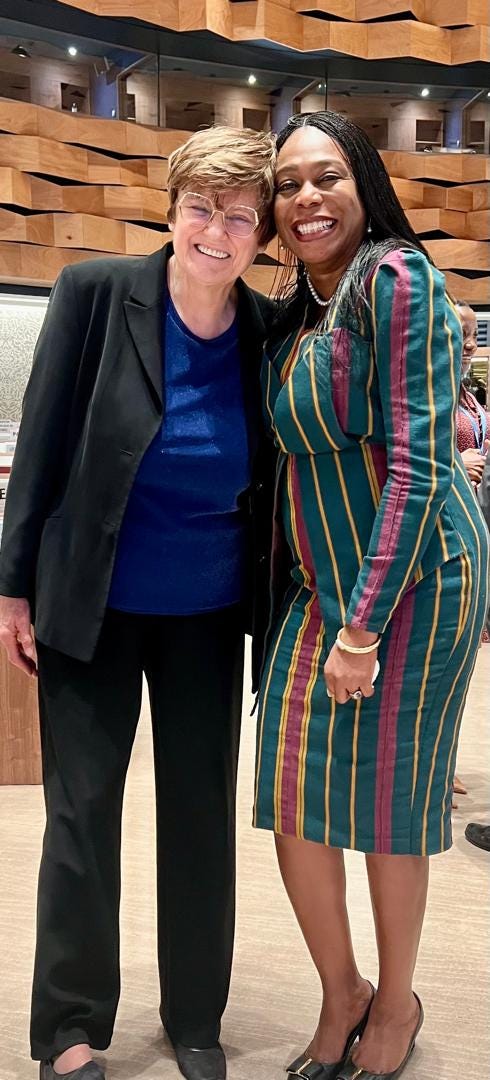
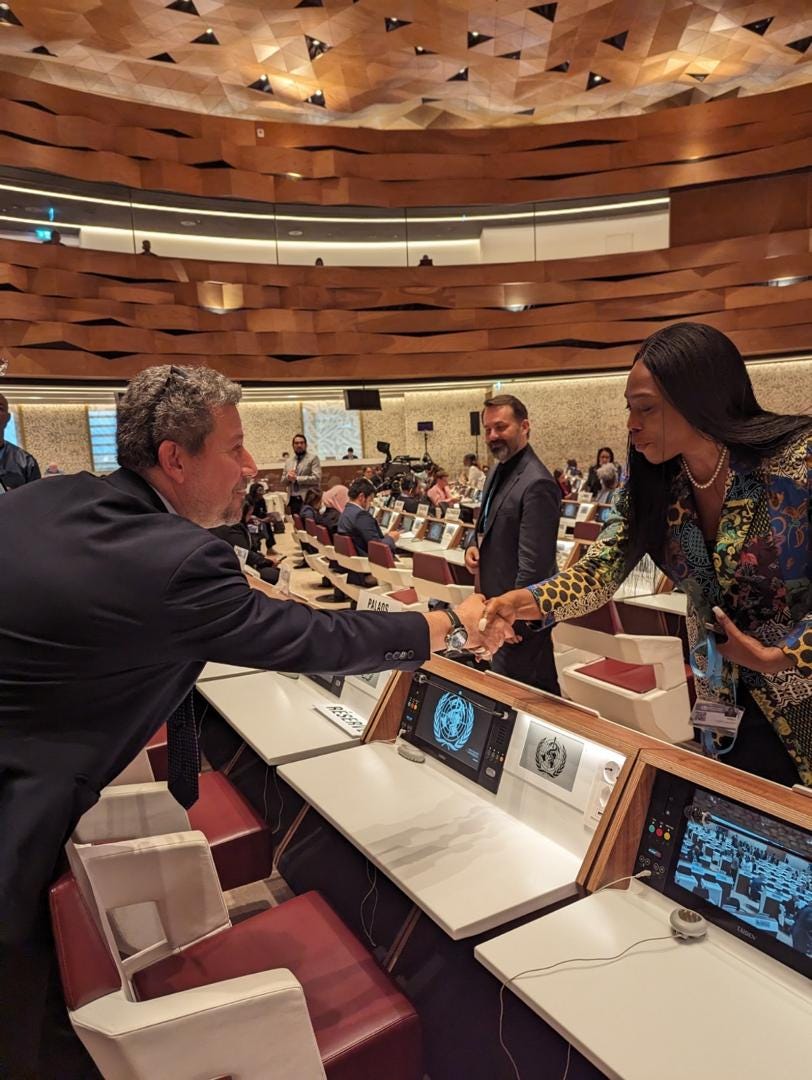
This is a powerful article calling out the racism and sexism which is pervasive in our world. The inequity which characterises pandemic response, for example, can only be based on seeing some lives as of less value than others. This is reprehensible.
In my opinion, this article says it all. Racism has undermined the tremendous progress that would have been achieved in many institutions around the world. It is for this reason that wherever it occurs. racism should be challenged and denounced.